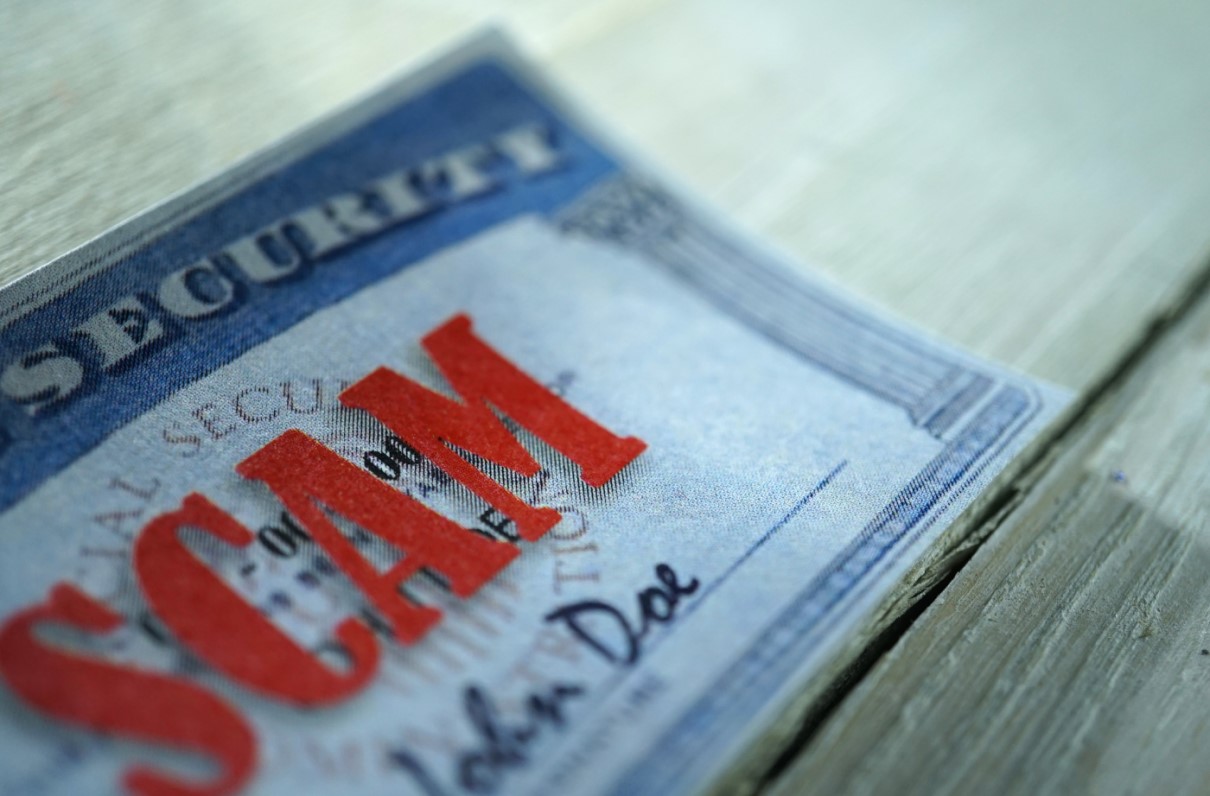Note: MOAA is a partner in the Cybercrime Support Network's Military and Veteran Program, which aims to protect servicemembers, veterans, and military families from falling victim to fraud. The below article from the Cybercrime Support Network's website is reprinted with permission.
Imagine this: You’ve spent months planning your dream summer vacation. You’ve saved up your hard-earned money, booked your flights and accommodations, and created the perfect itinerary. You arrive at your destination, excited to explore everything this new place has to offer. But before you know it, you find yourself in the middle of a scam that leaves you feeling violated, ripped off and helpless. Whether it’s fake booking websites, vacation rental scams, or juice jacking, summer travel scams can quickly turn your dream vacation into a nightmare. That’s why it’s essential to be aware of these scams and take the necessary precautions to protect yourself.
[RELATED: Military Officer Magazine Live and Play 2023]
6 Common Cyber Travel Scams
Most people turn to the internet to book their travels and save a pretty penny. While cyber travel booking can be convenient and cost-effective, it also comes with its fair share of risks. Here’s a closer look at some of the most common cyber travel scams:
1. Fake Travel Websites. Scammers create fake travel booking websites that look like legitimate ones, but are designed to steal your money and personal information. They might offer attractive deals on flights, hotels, and vacation packages, but when you make a payment, your money goes straight into the scammers’ pockets.
2. Travel Verification Scams. Scammers pose as travel agents, hotels or airlines and contact you to verify your booking information. The scammer will typically inform you that there is a problem with your reservation, such as an incorrect payment or an overbooking, and will request that you provide your personal and payment information to correct the issue.
[MEMBER BENEFIT: Save on Travel Protection With Emergency Assistance Plus (EA+)]
3. Prize Scams. Prize scams involve scammers contacting you to say that you’ve won a free vacation, cruise or other travel prize. However, in order to claim your prize, you have to pay for taxes, fees or other expenses upfront. Once you pay, the scammers disappear, and you never receive your prize.
4. Vacation Rental Scams. Vacation rental scams involve scammers listing fake vacation rentals on legitimate websites like Airbnb, HomeAway and VRBO. These scammers often offer attractive rental rates and photos of beautiful properties, but once you make a payment and show up, you find out that the property doesn’t exist, isn’t available for rent, or isn’t as described.
5. Wi-Fi Hotspot Scams. Scammers set up fake Wi-Fi hotspots in public places like airports, cafes and hotels. These fake hotspots often have legitimate-sounding names—such as “Free Airport Wi-Fi” or “Hotel Guest Wi-Fi”— but they are designed to steal your personal information. Once you connect to the fake Wi-Fi network, the scammers can intercept your internet traffic and gain access to your sensitive information—such as passwords, credit card numbers and other personal data.
[RELATED: How to Protect Yourself and Your Family From Medical Identity Theft]
6. Juice Jacking. Public charging stations allow travelers to charge their devices. However, hackers can modify these charging stations to install malware onto connected devices, which can then steal personal data such as passwords, credit card numbers, and other sensitive information. In some cases, the malware can even lock the device and demand a ransom to release it.
How to Spot and Avoid Cyber Travel Scams
Cybercriminals are continuously devising new techniques to exploit unsuspecting travelers online, from fake websites to phishing emails and malicious Wi-Fi networks. However, by equipping ourselves with knowledge and adopting smart practices, we can protect ourselves against these cyber travel scams. Let’s explore some effective strategies to help you spot and avoid cyber travel scams:
Do Your Research
Before booking a flight, hotel or vacation package, do your research to make sure you are dealing with a legitimate company. Check reviews, ratings and complaints from other travelers on trusted review sites.
Beware of Fake Reviews
Some scammers create fake online reviews for hotels, restaurants, and other travel services, in order to trick travelers into booking with them. These reviews can be difficult to spot, but if you notice a large number of glowing reviews without any negative feedback, it might be a red flag that the reviews are fake.
Watch Out for Deals That Are Too Good to Be True
If a deal seems too good to be true, it probably is. Scammers often use attractive deals to lure travelers into their traps. Be wary of unsolicited emails or phone calls offering you travel packages at extremely low prices.
Check the Website’s URL
When booking a travel service online, make sure you are on a legitimate website. Check the URL carefully to ensure it is spelled correctly and uses “https” at the beginning, which means the site is secure.
Use Secure Payment Methods
When making a payment for a travel service, use a credit card or a secure payment method like PayPal. Avoid wire transfers or cash payments, as these methods offer little to no protection against fraud.
[RELATED: Report Shines Light on Why Scammers Target Servicemembers and Veterans]
Be Cautious of Unsolicited emails or Messages
If you receive an unsolicited email, text message, or social media message from a travel company, be cautious. Scammers often use phishing techniques to trick you into giving away your personal information or clicking on a malicious link.
Trust Your Instincts
If something seems off or too good to be true, trust your instincts and proceed with caution. If you are unsure about a travel service or a deal, ask a trusted friend or family member for their opinion before making a payment.
Avoid Public Wi-Fi
Be cautious when connecting to public Wi-Fi networks. Stick to networks that you trust and avoid networks with suspicious or generic names. Consider using a Virtual Private Network (VPN) to encrypt your data and protect your online activity from potential hackers.
Steer Clear of Public Charging Stations
Instead, bring your own portable charger or use an AC power outlet to charge your devices. If you must use a public charging station, use a charging cable that does not transmit data—such as a charging-only cable.
Summary
Unfortunately, cyber travel scams are a common occurrence that have the potential to ruin your vacation and compromise your sensitive information. It’s important to be aware of the most common travel scams and to take steps to protect yourself while traveling. By using caution when providing personal and payment information, avoiding public charging stations, and being vigilant of suspicious emails or phone calls, you can minimize your risk. With a little extra diligence, you can enjoy your summer travels with peace of mind and avoid any unnecessary complications or headaches.
Protect Yourself With the Most Powerful, Comprehensive Identity Protection
Let Identity Guard help protect you and your family. 20% off for MOAA members and their families.


